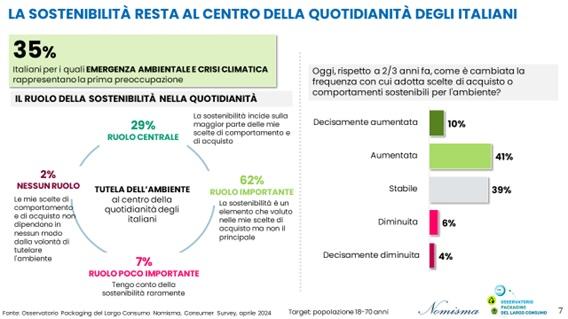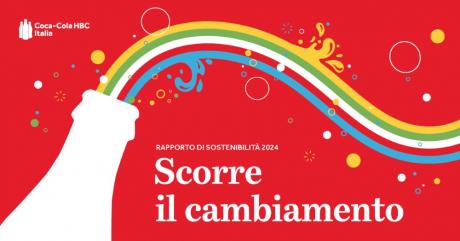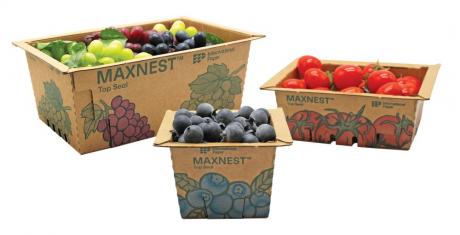On the occasion of Cibus, the Osservatorio Packaging del largo consumo edited by Nomisma was presented with the results of the survey on the consumption behaviour of Italians, who are increasingly attentive to health, nutrition and sustainability issues, with particular attention to the role played by packaging.
"Italians are also increasingly attentive to sustainability, which remains at the centre of their daily actions: for 62%, sustainability is in fact a fundamental element to be evaluated in their purchasing choices, while for almost 1 consumer out of 3 it directly affects their spending behaviour. In this scenario, packaging undoubtedly plays a leading role: for 2 Italians out of 3, packaging plays a decisive role in food and beverage purchasing choices, while for 1 out of 2 it represents a crucial aspect in helping to make a food product more environmentally friendly. It is no coincidence that the characteristics most sought after by Italians who want sustainable packaging are: no over-pack, fully recyclable and biodegradable," commented Emanuele Di Faustino, head of Nomisma's industry, retail & services division.

Leading the sustainability characteristics that households look for most when they want to buy a product with sustainable packaging is the absence of excess packaging (considered a priority by 45% of consumers), followed by whether the packaging is fully recyclable (43%), or compostable/biodegradable (38%), or made from recycled material (35%) or plastic-free (29%). There is also a strong focus on packaging that is reusable, or produced with responsible use of resources.
Packaging also plays an important role in healthy food, i.e. those food and drink products that consumers recognise as having beneficial effects on a person's health and physical and mental wellbeing. In vegan and vegetarian foods, the packaging characteristics that capture the attention of consumers concern first and foremost the presence of certifications attesting to the 100% vegetable origin of the ingredients (54%), followed by the environmental sustainability of the packaging (51%), nutritional information (44%), the presence of images that recall the veg world (32%), and packaging materials (32%).
In the case of free-from products, on the other hand, it is the nutritional information (53%), the presence on the label of the indication 'absence of' (52%), the environmental sustainability of the packaging (40%), the presence of certifications attesting the absence of specific products (33%), the emphasis on the indication 0% of (28%), and the packaging material (20%) that most influence the consumer. Nutritional information is also an attractive feature for 52% of consumers interested in foods rich in and with beneficial effects, followed by the presence on the label of the indication 'product enriched with' (42%), and the environmental sustainability of the packaging. In the case of high-protein and meal replacement foods, greater importance is given to nutritional information (52%), followed by the environmental sustainability of the packaging (35%) and taste and flavour claims (33%).









